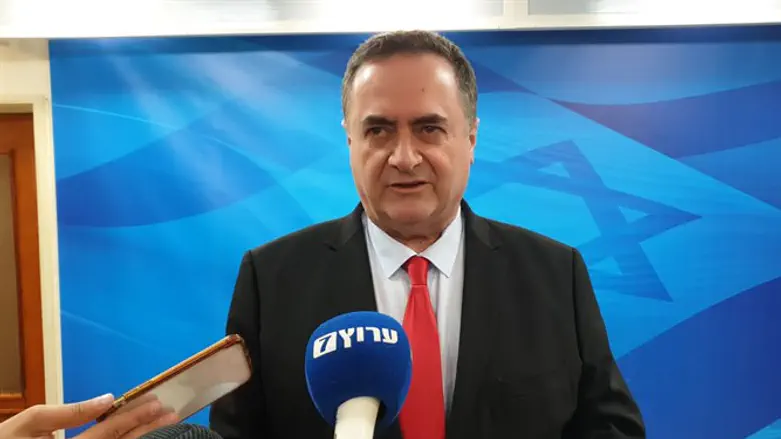
Finance Minister Yisrael Katz gave an interview with the 'Afternoon Parliament' program on the Knesset Channel Monday afternoon in which he addressed the failure to extend the school year following the coronavirus crisis, the state of the economy, and internal struggles within the coalition.
Katz shrugged off responsibility for the crisis with the teachers' organizations, saying that those who dealt with the issue were the Education Minister and the staff of the Finance Ministry, but that he was not required to get involved himself.
"I was less involved in it. The Education Minister was in charge of the issue for the duration of the school year, and the Finance Ministry staff worked with him along with Education Ministry staff. In the end, the court did not allow the continuation of the studies, so at the moment the Education Ministry is involved in backing up the Finance Ministry to ensure there are summer school, in order for the young children to at least not sit in the house all day and have a structure, and so that the parents can work as we bring employees back to work in the reopened economy," Katz said.
Addressing the decision of the Coronavirus Cabinet to adopt a reference scenario in which 2,000 coronavirus patients will require ventilators, Katz said: "There is a difference between [reality] and a reference scenario, which is the most severe scenario that the Health Ministry and the other relevant factors prepare for in their assessments. We're far from this scenario."
"However, we certainly see a disturbing trend in the increase in morbidity. The graph that started out very high and then dropped has jumped up again. It still hasn't gotten as bad as it was before, but there is definitely a disturbing trend and we must be prepared. My position is not to close things. Today the economy is safe, but everyone must obey the rules. We as a government give tools mainly to the local authorities, and it was also suggested that they use the money collected from fines. We have no interest in taking the money from the public, we just want to create a deterrent," he said.
The minister addressed the current state of the Israeli economy, stating: "I have found this to be the gravest economic situation in the history of the state, at least in the past few decades, and it is not going to improve in this sense that the deficit will increase over 10% by the end of the year and will cause negative growth and a a bad GDP to debt ratio."
Despite this, the minister said that the government is putting large sums into the economy to help businesses and sectors that have been affected by crisis. "We are pumping huge sums into the economy."
